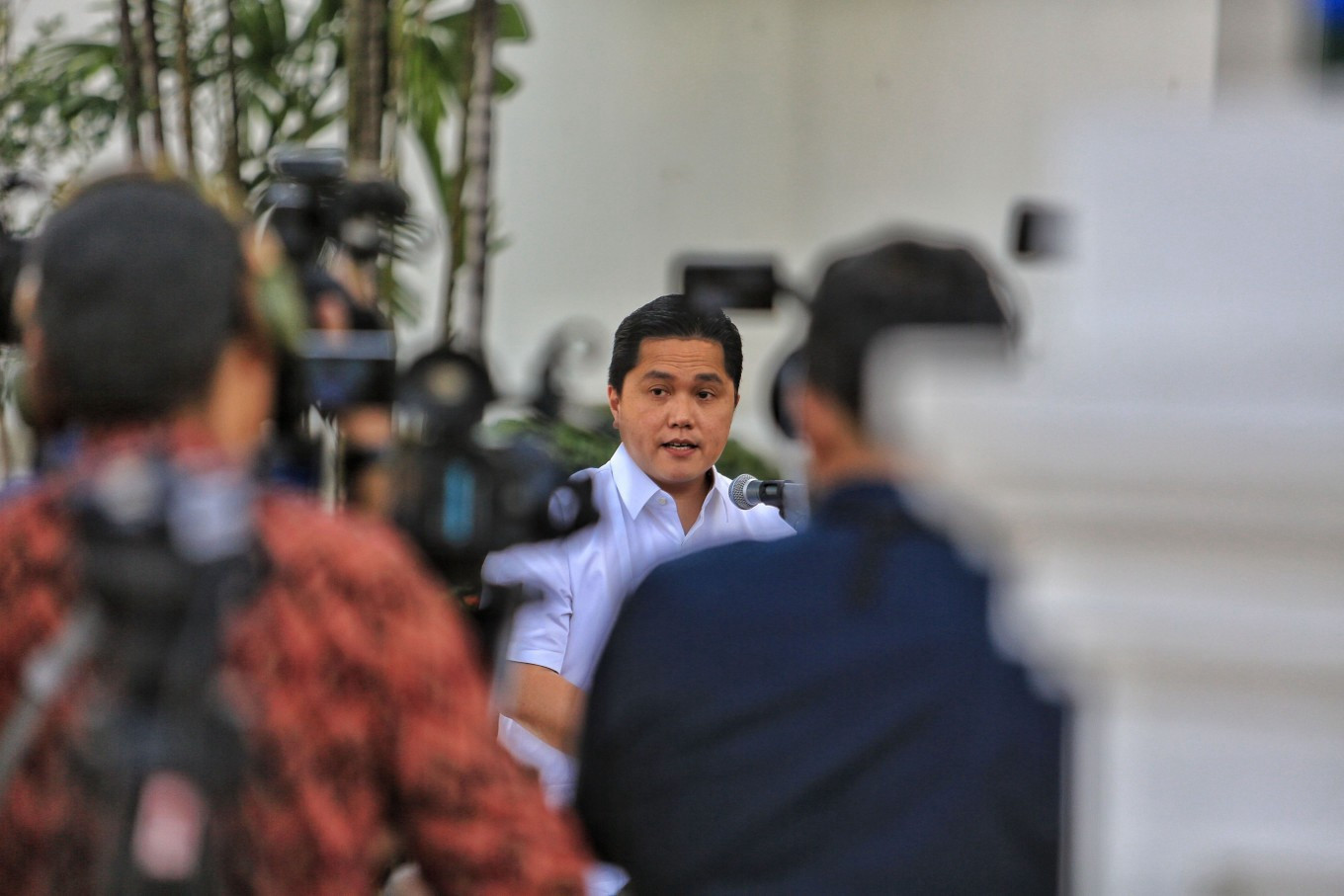Popular Reads
Top Results
Can't find what you're looking for?
View all search resultsPopular Reads
Top Results
Can't find what you're looking for?
View all search resultsAnalysis: Govt rushes SOEs Law revision, paving the way for privatization
Change text size
Gift Premium Articles
to Anyone
T
he House of Representatives (DPR) has officially approved the long-awaited third amendment to Law No. 19/2003 governing state-owned enterprises (SOEs). The revised law aims to achieve several key objectives, with two drawing particular attention: The establishment of the investment management agency Daya Anagata Nusantara (Danantara), which has faced repeated delays since its planned launch in November last year, and the creation of a legal framework for the privatization of SOEs.
Despite the extensive scope of these amendments, the legislative process was rushed. During a working committee (Panja) meeting, lawmakers reviewed 2,382 points on the problem inventory list (DIM), ultimately deciding to retain them while approving amendments to just 11 points. This session took place on a Saturday, only three days before the Tuesday plenary meeting when the bill was officially passed. Notably, the plenary meeting was presided over by DPR Deputy Speaker Sufmi Dasco Ahmad, underscoring the bill’s high priority.
While the bill’s passage marks a significant milestone, the prolonged delays leading up to its approval raised concerns. The law was originally expected to be finalized in November last year, four months prior, amid speculation that Danantara would assume certain responsibilities from the SOEs Ministry, particularly in overseeing major state-owned companies. However, this shift required amendments to the law, allowing a separate agency to wield ministerial authority, an issue that sparked resistance from SOEs Minister Erick Thohir and contributed to the delay.
In recent months, the stalled revision of the SOEs Law and the uncertain future of Danantara fuelled ongoing debate. Given that Indonesia’s SOEs held an estimated US$750 billion (Rp 11.6 quadrillion) in assets in 2023, accounting for approximately 55 percent of the country’s GDP, the scale of these reforms warranted careful deliberation. However, the lack of clarity discouraged foreign institutional investors from committing to Indonesia, as speculation surrounding BPI Danantara and its role created uncertainty.
Critics have argued that the delay in revising the SOEs Law stifled the modernization of state-owned enterprises and prolonged economic uncertainty. Investors, both domestic and international, remained cautious amid rumors of bureaucratic gridlock.
In the lead-up to the bill’s passage, reports surfaced that minister Erick Thohir might be appointed to a supervisory board overseeing Danantara as part of a political compromise to expedite the legislation. However, following the plenary meeting, Deputy Speaker Sufmi Dasco Ahmad clarified that the President would be responsible for appointing board members, with the DPR having no direct involvement in the selection process.
The revised SOEs Law introduces several crucial changes, including: 1) Expanding the definition of SOEs, particularly by relaxing certain financing and management restrictions. 2) Redefining SOEs subsidiaries to include entities previously unregulated under the SOEs Law. 3) Establishing BPI Danantara, SOEs investment holding and SOEs operational holding, along with mechanisms for restructuring and privatization. 4) Incorporating the Business Judgment Rule judicial doctrine into SOEs governance. 5) Strengthening guidelines for SOE asset management in line with good corporate governance principles. 6) Mandating that SOEs provide employment opportunities for people with disabilities, local communities and female employees. 7) Introducing clearer regulations on the establishment of SOE subsidiaries, including requirements and approval mechanisms. 8) Defining rules governing corporate actions such as mergers, consolidations, acquisitions and spin-offs involving SOEs. 9) Regulating the privatization of SOEs, including the process and criteria for privatizing SOEs. 10) Regulating the Internal Audit Unit, the Audit Committee and other committees. 11) Regulating the obligation of SOEs to carry out guidance, training, empowerment and cooperation with micro, small, and medium enterprises (MSMEs) and cooperatives, as well as local communities where the SOE is located.



















